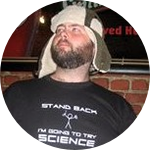About This Project
There is speculation that the bacterium, Mycobacterium avium paratuberculosis (MAP), is a causative agent of Crohn's disease (CD). Current diagnostic techniques for MAP are poor. Therefore, it is crucial that we devise new assays to detect for MAP in CD patients. To gain insight into the relationship between MAP and CD, we must sequence the MAP genome and isolate it from CD patient blood. Genomic isolation techniques include PCR amplification and the novel use of hybrid capture probes.
Ask the Scientists
Join The DiscussionWhat is the context of this research?
Crohn's disease (CD) is a form of Inflammatory Bowel Disease (IBD) that impacts approximately 700,000 Americans. While there is no known cause for CD, Mycobacterium avium paratuberculosis (MAP) has been proposed as a causative agent. This bacterium is known to cause a gastrointestinal condition in ruminants, called Johne's disease, which has striking similarities to CD. In previous studies, MAP has been shown to be significantly more prevalent in patients with CD (see https://www.ncbi.nlm.nih.gov/p...). Past research, however, has not been able to pinpoint this higher incidence as being causative or correlative. Gathering sufficient genomic data to demonstrate the influence of MAP in CD would greatly advance efforts to find a cure, which remains elusive.
What is the significance of this project?
MAP is a gram-positive, mycobactin dependent, obligate pathogen. The bacterium is routinely spread throughout dairy and beef herds as it is sub-clinically shed from infected cattle. The pathogen can survive pasteurization and chlorination techniques, showing that MAP may be present in our dairy, water, and beef supplies. Crohn's disease, which is the potential result of a MAP infection, is oftentimes debilitating. Symptoms include gastrointestinal bleeding, weight loss, fatigue, stomach pain, and diarrhea. If complications persist, CD can be fatal. Due to the severe nature of Crohn's disease, it would be beneficial to uncover the relationship MAP plays in the condition. Sequencing of the MAP genome is the first step to understanding this relationship.
What are the goals of the project?
The goals of this project are to sequence the MAP genome and then develop a set of methods for the identification of the bacterium, Mycobacterium avium paratuberculosis (MAP), in blood samples obtained from patients with Crohn’s disease. First, we will obtain samples of MAP that have been successfully cultured from blood samples of CD patients. We will then extract DNA from these samples and sequence the MAP genome. After sequencing, we will design a set of MAP-specific PCR primers and use these to PCR amplify MAP. Additionally, we will PCR amplify MAP directly from CD blood samples, as well as design a set of MAP-specific hybrid capture probes, bypassing the need to grow MAP in culture.
Budget
The primary focus of this research project is to isolate the DNA of MAP so that its genome can be sequenced. After doing so, MAP-specific primers will be designed so that we can attempt to PCR amplify it from the blood of patients with Crohn's disease. Additionally, hybrid capture technology will be used to test for MAP in patient blood. These goals, which may later prove MAP to be the causative agent of Crohn's disease, are only possible if the genome of MAP is sequenced first.
Endorsed by
 Project Timeline
Project Timeline
By early July, we will have extracted DNA from samples of MAP that our collaborator successfully cultured from blood samples obtained from Crohn's patients. Following this step, we will sequence the MAP genome and design MAP-specific PCR primers by mid-late July. By mid August, we will attempt to PCR amplify MAP and use hybrid capture probes on the blood of patients with Crohn's disease, in order to determine if MAP is present within patients that have Crohn's disease.
Jun 29, 2017
Project Launched
Jul 07, 2017
Obtain MAP samples and extract DNA
Jul 14, 2017
Sequence MAP Genome
Jul 28, 2017
Design and test MAP-specific PCR primers
Aug 11, 2017
Use hybrid capture probes and PCR amplification to detect for MAP in the blood of patients with Crohn's disease
Meet the Team
Affiliates
Affiliates
Jacob Friedman
I am a rising sophomore in the Honors College at the University of Maryland-College Park. I am a Biology major with a concentration in ecology and evolution. My other academic passions include genetics, microbiology, cellular biology, and environmental science. I aspire to attend medical school and become an orthopedic surgeon, immunologist, or gastroenterologist.
This summer I am working at the Institute for Genome Sciences at the University of Maryland School of Medicine under Dr. Claire Fraser. We will be studying the pathogen Mycobacterium avium paratuberculosis (MAP) as a possible causative agent of Crohn's disease. I was diagnosed with Crohn's disease in April of 2014 and am very familiar with the symptoms, biology, and patterns of the disease. As an aspiring biologist and someone who has firsthand experience with Crohn's disease, I am dedicated to discovering the role MAP plays in Crohn's.
Silvia Beurmann
Born and raised in Switzerland, I received a B.S. in Biology and Biochemistry from the University of Zurich in 2010. After graduation I completed an internship focusing on the health state of the Seychelles' coral reefs. Afterwards I moved to Honolulu, Hawai‘i, where I enrolled in the Ph.D. program in Microbiology specializing in Marine Biology. I investigated the coral disease Montipora White Syndrome and the pathogenic bacteria associated with this disease. I then decided to change my field of study and apply my learned skillset to the human disease field, investigating the human gut microbiome.
Additional Information
This work will provide the foundation for expanded studies to investigate the potential role of MAP as a causative agent in Crohn's disease. Our work may provide the foundation for a cure for Crohn's to be discovered.
Project Backers
- 5Backers
- 10%Funded
- $200Total Donations
- $40.00Average Donation





